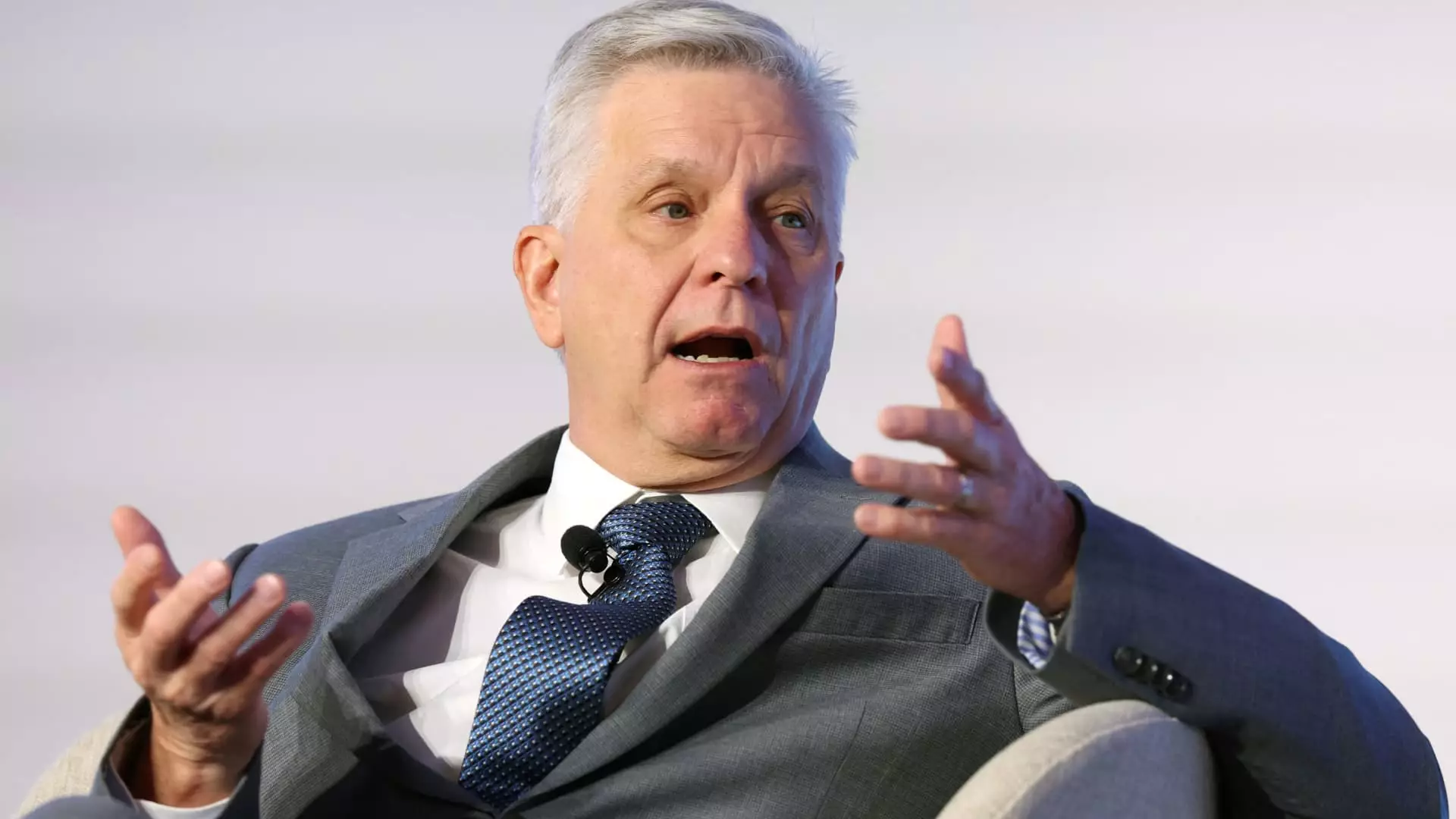Federal Reserve Governor Christopher Waller recently ignited a discussion among economists and investors alike by expressing his belief that the Fed should consider cutting interest rates as early as next month. His rationale? A prevailing sentiment that current inflation is not a formidable enemy. This raises a vital question: Are policymakers truly prepared to make dramatic adjustments to the nation’s fiscal strategy based on a somewhat optimistic view of the economy? Waller’s remarks come on the heels of four consecutive meetings in which the Federal Open Market Committee (FOMC) has opted to maintain steady rates. In an era of escalating costs, does easing monetary policy truly align with the economic landscape, or does it expose the fragility of our financial systems?
Critics might argue that such an approach could be reckless, particularly when Waller underscores a potential threat to the labor market. He urges the Fed to act proactively rather than waiting for an economic downturn to substantiate a rate cut. While preemptive measures can often be wise, one must consider whether haste is misplaced. The labor market, despite Waller’s concerns, remains resilient. Should the Fed risk destabilizing that very market with changes in monetary policy based on conjecture rather than solid empirical data?
Market Reactions: The Double-Edged Sword of Rate Cuts
Waller’s words did not fall on deaf ears; market futures surged following his comments. This reaction underlines a crucial aspect of markets—their volatility can often be misaligned with fundamental economic indicators. Is a surge in stock futures truly a sign of optimism, or just a fleeting response to the announcement of potential monetary easing? Investors, eager for cheap borrowing costs and greater liquidity, tend to embrace rate cuts. However, the potential repercussions of such a move cannot be overlooked.
The reality is that financial markets are notoriously fickle; when relying on them to gauge the strength of an economy, one risks walking a tightrope. Waller’s perspective seems to float on a tide of positive sentiment, while others in the FOMC maintain a more cautious stance. Amid the backdrop of President Trump’s vocal criticism of the Fed’s existing rates, one must ponder the ethical implications of allowing political pressures to guide crucial economic decisions.
The Warning Signs: Are We Ignoring the Data?
Waller argues that the impacts of tariffs should be viewed as transitory, perhaps too optimistic, especially given the uncertainty surrounding global economic interactions post-COVID and ongoing supply chain disruptions. A rigid reliance on past data may lead policymakers astray. While Waller believes the data post-tariffs indicate minimal long-term inflation risks, it is critical to consider that inflation’s current absence does not guarantee its dismissal in the future.
Current inflation is less a product of interest rates than of larger forces at play—global supply chains, labor shortages, and changing consumer behaviors. Tariffs may have introduced a “one-off level effect,” but one must think critically about the long-term ramifications of continued protective taxes. Waller’s argument for a gradual approach to cut rates attempts to assuage fears of immediate economic collapse, yet may overlook the more Sisyphean task of nurturing a sustainable economic environment.
Historical Context and Future Implications
Historically, the Fed has faced criticism during times of economic uncertainty. Many remember the aftermath of the housing crisis in 2008, where artificially low interest rates helped create a speculative bubble. Could we be headed down a similar path again, fueled by a political landscape more focused on short-term gains rather than long-term stability? When the leadership of the Fed bends to political pressure, as we see with President Trump’s recent calls for rate reductions, the integrity of independent monetary policy is jeopardized.
Waller himself, possessing aspirations that may yet lead him to the chairmanship of the Fed, must tread carefully. His push to initiate cuts could sway perceptions, but one must ponder whether such a stance is genuinely selfless, or strategically positioned. If Waller indeed acknowledges labor market turbulence as a critical point of concern, why not advocate for more robust measures to bolster job creation and wage growth rather than merely adjusting interest rates?
The FOMC’s eventual response remains uncertain, but the disparity among its members pinpoints a need for consensus that transcends political pressures. A collective approach is necessary to foster sustainable economic growth while ensuring that rate cuts do not serve as superficial fixes for deeper systemic issues. The interconnectedness of global economies necessitates a vigilant reevaluation of monetary policies that prioritize long-term growth over short-term political gains.
The question remains: as we gaze into the future of monetary policy, can we trust those in charge to steer the ship away from stormy seas, or will we drift into uncharted waters, potentially unprepared for the economic repercussions to come?

